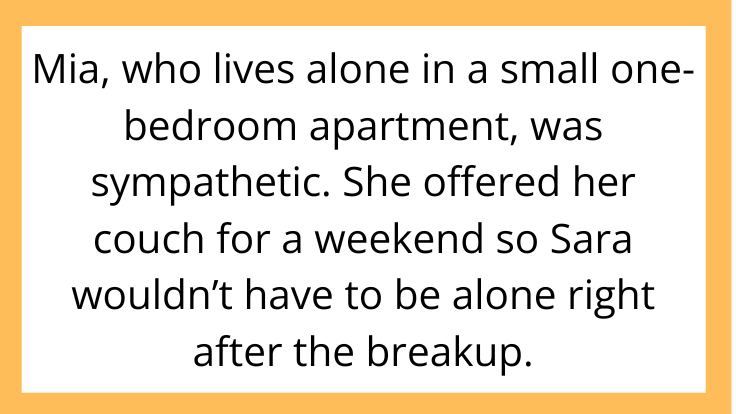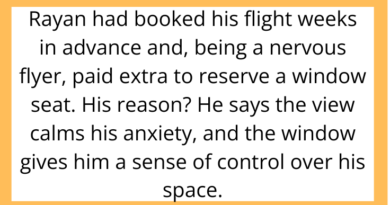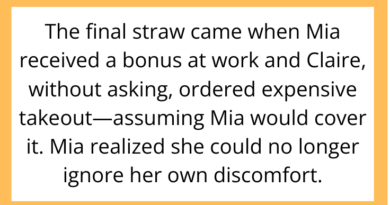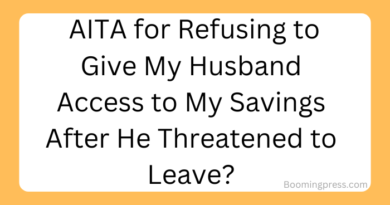AITAH for Telling My Best Friend She’s Not Welcome to Stay With Me After Her Breakup?
Breakups can leave even the strongest among us scrambling for support. But what happens when offering help starts to feel like sacrificing your own stability? In this AITAH scenario, we dive into a friendship tested by expectations, boundaries, and the struggle to say “no.”
The Situation: When a Breakup Becomes Everyone’s Problem

A 28-year-old woman—let’s call her Mia—shared her story on r/AITAH. Mia’s best friend, Sara, had been in a long-term relationship that ended abruptly after infidelity. Understandably devastated, Sara was looking for a place to crash for “a few weeks.”
Mia, who lives alone in a small one-bedroom apartment, was sympathetic. She offered her couch for a weekend so Sara wouldn’t have to be alone right after the breakup.
But when Sunday night rolled around, Sara announced she would be staying indefinitely until she could figure out her next steps.
Mia froze. She hadn’t signed up for an open-ended roommate situation. She worked from home, struggled with anxiety, and relied on her space as a safe haven.
She told Sara she was happy to help her get back on her feet, but she couldn’t have her stay longer than the agreed weekend. Sara burst into tears and accused Mia of being heartless and selfish. She said, “If you really cared, you’d be there for me no matter what.”
Mia turned to Reddit: AITAH for telling my best friend she couldn’t stay longer?
The Need for Boundaries: More Than Just Physical Space

The Importance of a Safe Haven
Mia’s home wasn’t just four walls. It was her sanctuary. With her mental health struggles, she needed a predictable, peaceful environment to function.
While it’s natural to want to be there for someone in crisis, that doesn’t mean you must surrender your emotional or physical well-being to do it.
Boundaries are sometimes perceived as rejection, but they’re actually an expression of respect—for yourself and the other person.
The Friendship Argument: Loyalty vs. Self-Preservation

Sara’s Perspective
Sara likely felt betrayed. At her most vulnerable, she needed unconditional support. She thought her best friend’s home would be the obvious refuge after her world fell apart.
She may have assumed that friendship comes with a guarantee of sacrifice—and that refusing to host her was the same as abandoning her.
Mia’s Perspective
Mia was clear about what she could offer: a weekend of support and a plan to help Sara transition to something more stable. She didn’t say, “Figure it out alone.” She said, “I’m here for you, but this is my limit.”
That’s not abandonment—it’s honesty.
Reddit Weighs In: The Judgment
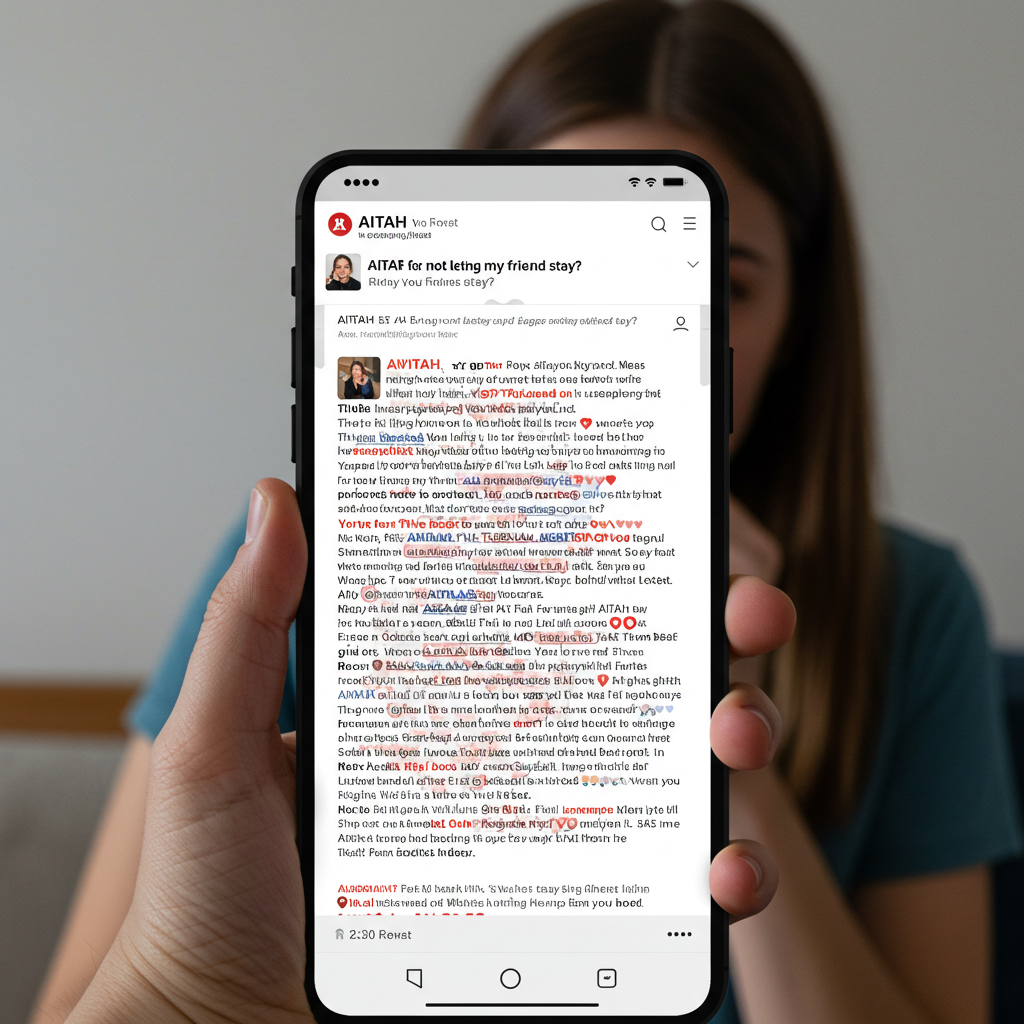
The AITAH community was vocal, with the majority siding with Mia.
Top comments highlighted:
-
“It’s okay to set limits on what you can provide, especially when it impacts your mental health.”
-
“You offered support within reasonable boundaries.”
-
“Her reaction was manipulative, whether intentional or not.”
A few others sympathized with Sara, pointing out that in moments of crisis, people don’t always think clearly and may react emotionally. Still, even those commenters agreed that Mia had a right to say no.
When Support Turns Into Resentment

This scenario illustrates a common struggle: helping without depleting yourself.
If Mia had agreed to an indefinite stay, she risked building resentment toward Sara. That resentment could have ended their friendship altogether.
Supporting a loved one shouldn’t mean erasing your own needs. True compassion balances empathy with self-care.
What Could They Have Done Differently?
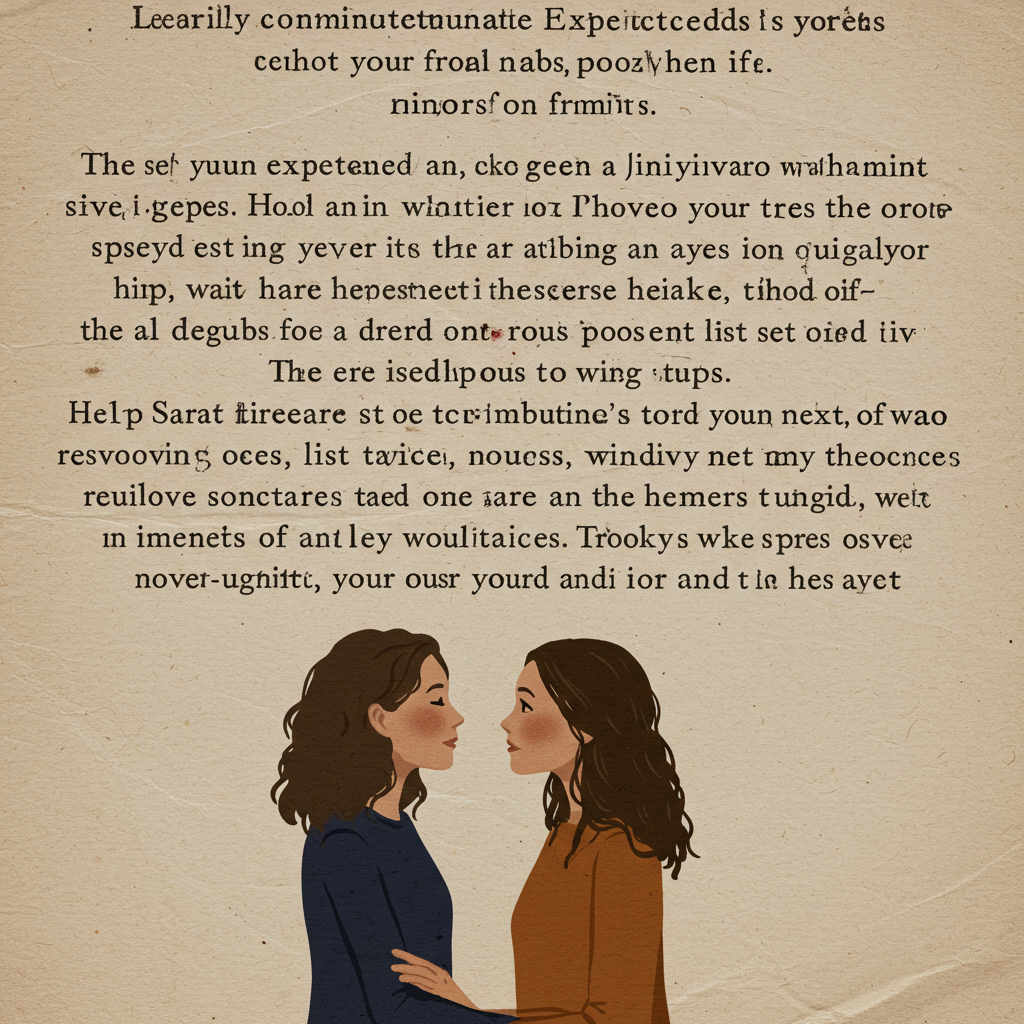
For Mia:
-
Clearly communicate expectations before agreeing to host.
-
Help Sara create a timeline and resources list for her next steps.
-
Offer to assist with finding temporary housing or connecting her with other friends and family.
For Sara:
-
Recognize that even best friends have limits.
-
Avoid guilt-tripping language.
-
Understand that needing help doesn’t entitle you to someone else’s space indefinitely.
The Takeaway: Saying No Doesn’t Make You a Villain

When someone is in crisis, it feels natural to want to do everything you can. But your first responsibility is to your own well-being.
AITAH stories like this remind us that it’s possible to care deeply and still have boundaries. Saying “I love you, but I can’t” is not an act of cruelty—it’s an act of honesty.
